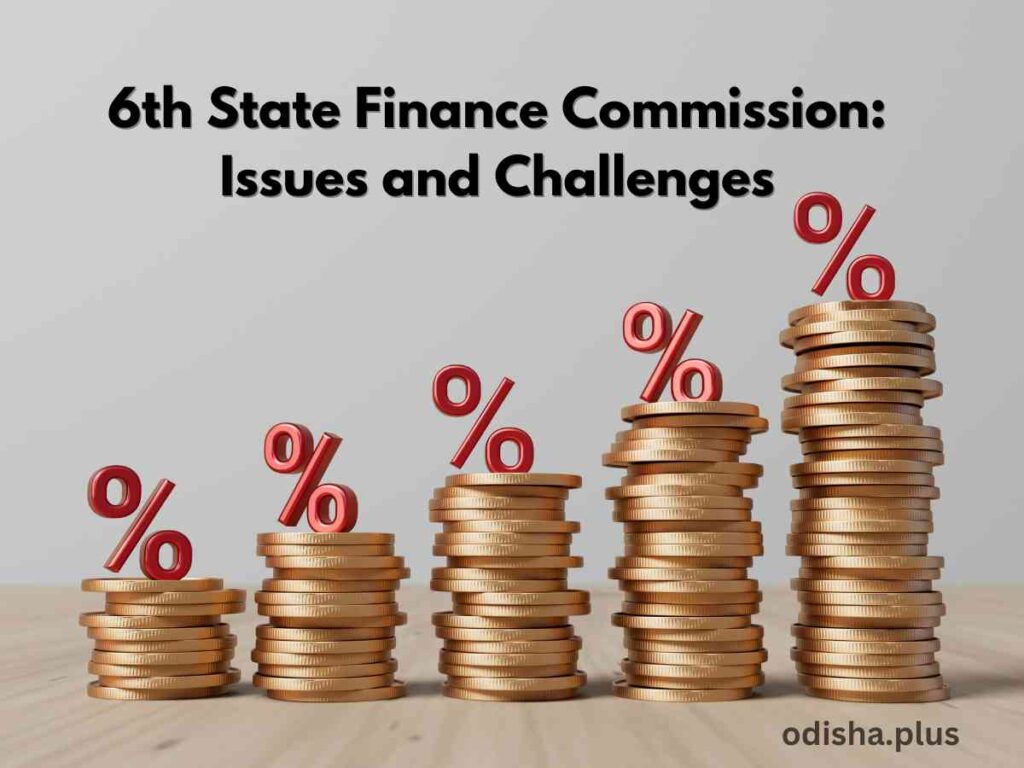Revolutionizing Local Self-Governance: The 73rd & 74th Constitutional Amendments Transforming Panchayati Raj Institutions & Urban Local Bodies
Pradip Biswal

The 73rd and 74th amendments of the Constitution heralded a new era in strengthening the Panchayati Raj Institutions (PRIs) and Urban Local Bodies (ULBs) in the country. It not only gave these grassroots organizations a constitutional status but also provided a mechanism for devolution of power and funds for their proper functioning. Being the third tier of government at the lowest level they are supposed to provide the basic services to the citizens.
However, they were suffering from the maladies of lack of power and money. Their own sources of revenue being meagre, they were dependent upon grants from the state government. But there was no criteria and assurance for flow of funds.
In order to address this issue, the constitution after these amendments, provided for constitution of State Finance Commission each five years whose mandate is to recommend to the state government the percentage of share of the PRIs and ULBs in the state taxes and levies during the next five years. Moreover, it is also required to recommend to the Central Finance Commission the quantum of assistance for the PRIs and ULBs to supplement the state resources.
In the scheme of things, the Central Finance Commission and the State Finance Commission should be constituted simultaneously for the same award period and the State Finance Commission should submit its report to the Central Finance Commission before the CFC finalizes its report. Of course it’s hardly being followed by the states.
Fortunately, Odisha is one of the few states to have followed the above principles in true sense. While some states have constituted the sixth commission, some are still struggling with fourth or fifth commission. The award period also differs in some cases with that of CFC. Although 13th Finance Commission had prescribed a template for the SFC report for the purpose of uniformly but it’s still not being followed by many states.
As I know from my association with the last two SFCs, Odisha has submitted the reports to the CFC well in advance. However, due to default by many other states, the CFC could not take a holistic view of the recommendations of the SFCs of different states and had to take unilateral decisions with regard to devolution of funds to the PRIs and ULBs in different states. Of course, it’s indicated that the inter se allocation of funds would be guided by the recommendations of the SFC of the concerned state.
The central government have already notified the constitution of the 16th Finance Commission long back on 31st December,2023 with Arvind Panagariya, former Vice Chairman, NITI Aayog as its Chairman. Incidentally, Dr Manoj Panda from Odisha, who was the former Director of Institute of Economic Growth, New Delhi and a prominent economist of the country is included as a Member of the Commission.
The Commission is expected to submit its report in 2025 and the award period will be for five years from 1st April, 2026. The 6th State Finance Commission was supposed to be constituted just after formation of the CFC but due to the intervening general election and change of government in the state, the same has been delayed. Hopefully, it will be constituted within few days.
The task for the 6th SFC would be enormous since it has to cope with the constitutional mandate within a very short period of time. The commission is expected to recommend to the state government the principles of transfer of funds from the state resources in the form of devolution, grants in aid and assignments.
Again, it has to decide the inter se allocation of funds for each of the three tier of PRIs and the three categories of ULBs depending upon their respective needs and responsibilities. As mentioned earlier, the SFC has to make recommendations to the CFC for the devolution of funds from the central government as well. For this purpose the Commission has to first quantify the requirements for the next five years, assess the quantum of state resources for the same period and determine the percentage of shares for the PRIs and ULBs. Since it may not be adequate to meet the needs of the PRIs and ULBs out of state resources, it may recommend to the CFC to meet the balance of funds required during the next five years.
With the flow of funds to the PRIs and ULBs during the award periods of 4th and 5th SFCs supplemented by funds from central government as per recommendation of the 14th and 15th Central Finance Commission, there has been considerable improvement in the financial health of these institutions. However, the quality of public service delivery and efficiency in governance are far from satisfactory.
While there is dearth of adequate manpower to manage these institutions and ensure service delivery qualitatively, the elected representatives have failed to perform efficiently. The governance is mostly left to the officials who used to take instructions from their higher ups undermining the position of the elected representatives. The planning process is almost absent in these institutions. Although there is a prescribed system of Gram Panchayat Development Plan (GPDP) which needs to be approved by the Gram Sabha and Palli Sabha but it’s only maintained in pen and paper.
Although funds are available but it’s being parked in the banks without being utilized properly. There’s no system in place to monitor the flow of funds and their utilization. It requires an IT platform to monitor the devolution and utilization of funds. The previous finance commissions had recommended for incentivization of growth in collection of own resources but there is no tangible improvement on this score. Now that the DRDAs have been merged with Zilla Parishad, the scope and ambit of role and responsibility of Zilla Parishad in the Panchayati Raj system will be increased.
The Commission has to take cognizance of this new development and recognize the importance of Zilla Parishad in the ecosystem. The state is going to create new ULBs in different districts. These new ULBs will require additional funds for development and they will need a special dispensation. Climate change and pollution have posed new challenges for the ULBs in terms of accessing groundwater for water supplies and efficient sewage treatment and disposal.
On the other hand, there are still many villages without drinking water supplies and motorable roads. Consequently, the people are exposed to serious health issues and are deprived of the minimum basic needs. An action plan is to be prepared to mitigate these problems in a time bound manner. Banking services and internet services for all the GPs still remain a far cry. This has to be addressed in a progressive way.
As it appears, the Commission may have to prepare an interim report for the CFC and submit a final report later taking into account the constraint of time. There’s precedence for this. It’s expected that the 6th SFC would be able to meet the expectations and address the issues in a pragmatic manner.
(The author is a poet & columnist and a former bureaucrat. Views expressed are personal)
























Excellent piece! Your thorough summary is much appreciated. I now see the issue from a different angle thanks to your insightful comments. You made your points quite clearly with the examples you included. You have my gratitude for penning this.